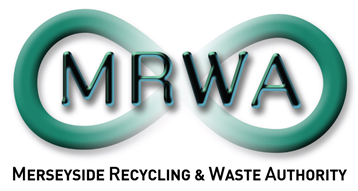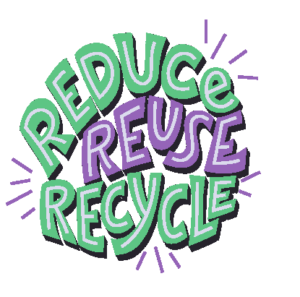It’s time to take our Green Pledge!
- WHAT’S THE GREEN PLEDGE? The UK will host the 26th UN Climate Change Conference of the Parties (COP26) in Glasgow in November. As leaders meet to discuss how to tackle the climate emergency, It’s important to know that each of us can make a commitment to change out behaviour- big or small, they are all valued and contribute to helping our environment and communities
- HOW CAN I PLEDGE?: Pledging is EASY! Just make a change to something that you might do in everyday life – something that makes what you do a bit greener and helps us tackle the impacts of climate change.
- HOW WILL YOUR PLEDGE HELP?:Making a Pledge and changing the way we think about waste, by reducing, reusing and recycling waste it helps us tackle the climate emergency. This is how you will help:
⇒LOVE YOUR CLOTHES: 336,000 tonnes of used clothing gets thrown in the bin in the UK. More than 5% of the UK’s total annual carbon and water footprints result from clothing consumption. If clothes stayed in active use for nine months longer, this would reduce their carbon, water and waste footprints by 20-30%.*
⇒GET IN THE REUSABLE HABIT: Reusing a shopping bag reduces the amount of plastic you consume and lowers the environmental impact of each bag. The single-use plastic bags cannot be recycled and are particularly problematic as they clog up machines in recycling plants. Fewer bags also means fewer carbon emissions. When a plastic carrier bag can no longer be used, you can’t put it in your usual household recycling, but it can be recycled at many supermarkets – visit www.recyclenow.com for more information.*
⇒RECYCLE MORE AND MORE OFTEN!: By recycling plastic, we are giving the material the best chance to have a new life, keeping it in use and out of the environment. Recycling reduces the need for new plastic made from raw materials, saving energy and carbon in the process. It takes 75% less energy to make a plastic bottle using recycled plastic compared to newly made plastic. *
⇒WASTING FOOD CAUSES CLIMATE CHANGE: If food waste was a country, it’d be the third biggest contributor of CO2 after China and USA.70% of the food that is wasted in the UK is wasted by citizens in their own homes. That’s 4.5 million tonnes of food that could have been eaten being thrown away every year. There is a huge environmental cost to wasting food. It isn’t just about the gases from food rotting in a bin or landfill, it’s the waste of all the precious resources that it takes to bring that food to your plate – the land, water, energy and hard work (not to mention love and care!). Make a delicious change and check out Love Food Hate Waste and, Wasting Food: It’s Out Of Date*
-
-
-
-
-
-
-
-
- WHAT SHOULD I PLEDGE? Need some inspiration on what to pledge? Check out our list below!
-
-
-
-
-
-
-
-
-
-
-
-
-
-
-
-
- THINK BEFORE YOU SHOP: Before you shop, think about how you could reduce your waste. For example, you could buy things with less packaging, or second-hand items.
- AVOID FAST FASHION: Cheap and fast fashion is having incalculable social and environmental costs – all to keep prices tags low and garments mass-produced. When you do shop, shop intentionally. Don’t buy anything new unless you need to, buy pre-loved second-hand, buy quality, donate, upcycle and repair!
- GET COMPOSTING!: By recycling more organic materials at home like green and garden waste, we’re creating less residual waste, looking after the planet and saving money. Composting copies the process which occurs in nature to breakdown and convert organic waste (i.e. garden waste, vegetable scraps, etc.) into a nutrient rich mixture that’s a positive addition to any garden.
- REPAIR DON’T REPLACE: Making things last longer saves you money because it means you don’t have to buy new things – so learn how to sew, or visit a repair cafe. Next time something in your home is acting up, why not see if you can fix it instead of chuck it.
- AVOID SINGLE USE PLASTCIS: Buy something that will last longer rather than a disposable plastic item
- SWAP TO RECHARGABLE BATTERIES: Are cheaper than disposables, and they can be used again and again – and using real crockery and cutlery for your parties instead of disposable ones can make a real difference.
- DITCH THE PLASTIC CARRIER BAGS: Choose reusable shopping bags: keep them in the car boot or pop a folded cotton bag in your handbag or pocket so you always have one to hand.
- YOUR RUBBISH COULD BE SOMEONES TREASURE: Contact your local Furniture Re-use Network – they distribute unwanted furniture and household goods to those in need. Or advertise your old furniture in your local paper or on websites such as Freecycle or Freegle.
- HAVING A CLEAR OUT?: Donate good quality clothing, books and unwanted gifts to charity shops. Alternatively use the clothing banks at your local recycling centre. www.merseysidewda.gov.uk
- AVOID WASTING FOOD: Every year in the UK we throw away £12.5 billion worth of good food, costing the average family almost £60 a month. To find out useful tips on the storage of food, tantalising recipes and advice on portioning and meal planning, visit Love Food Hate Waste. www.lovefoodhatewaste.com
- DONATE YOUR PAINT!: Donate left-over paint to your local charity. To find your nearest scheme visit Community Repaint www.communityrepaint.org.uk
- STOP UNWANTED MAIL: To stop receiving unsolicited advertising mail, contact the Mailing Preference Service and Royal Mail. Be aware when giving your name and address; ensure you indicate you don’t want your details to be used for future promotions or passed to other marketing agencies. www.mpsonline.org.uk
-
-
-
-
-
-
-
-
GET IN TOUCH!
Take a picture of the pledge that you make and post it on our social media using the hashtag #MRWAGreenPledge @RWAMerseyside Twitter or Facebook pages or email us a quick message at recycleright@merseysidewda.gov.uk
*With thanks to the Waste Resources Action Plan (WRAP) www.wrap.org.uk for the amazing facts and figures


